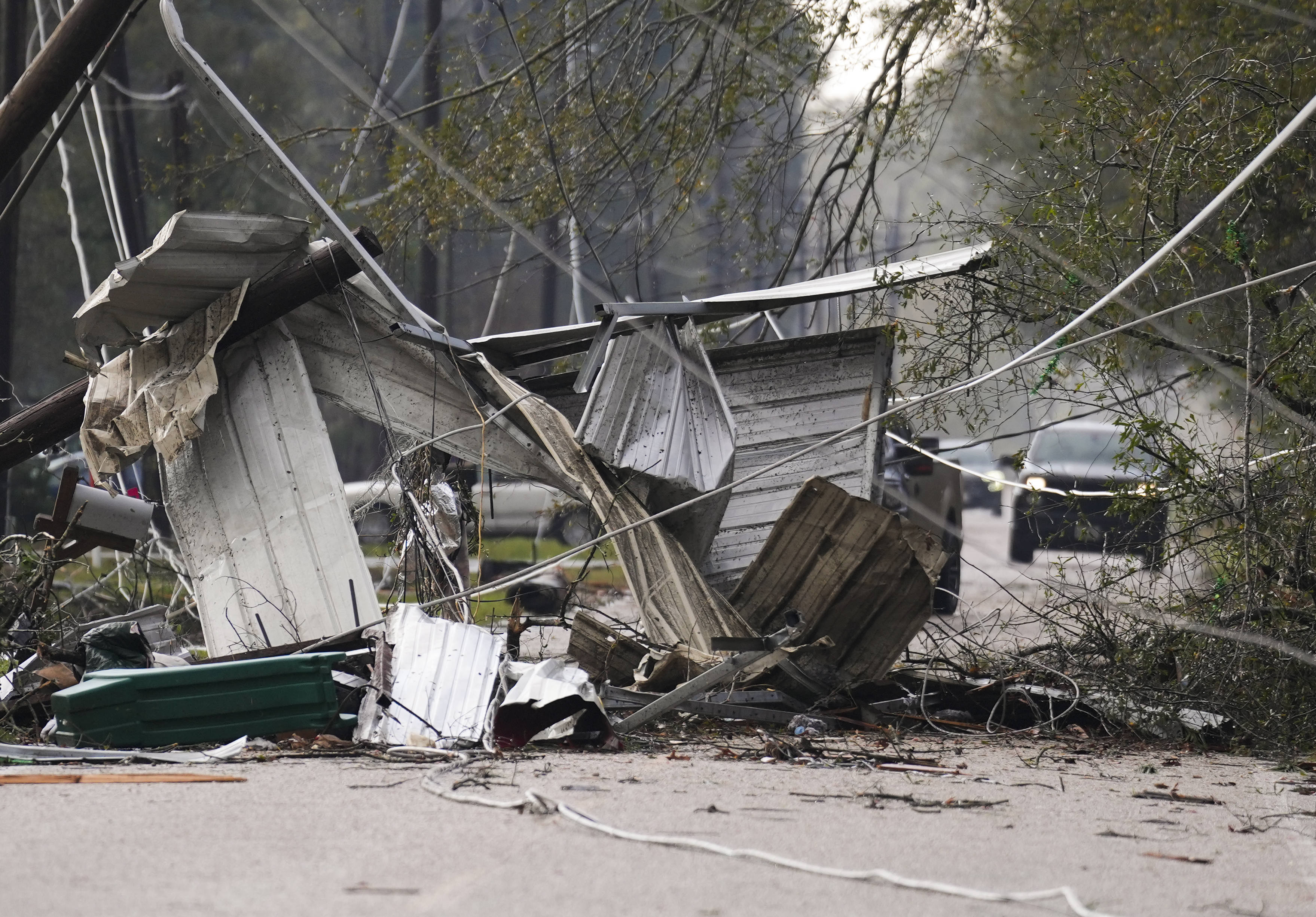Utah
Utah to receive $599K to protect children from lead in drinking water

Estimated read time: 2-3
minutes
SALT LAKE CITY — Utah will receive $599,000 in grant money to reduce the amount of lead in drinking water in schools and child care facilities, the Environmental Protection Agency announced Tuesday.
Following the passage of the Bipartisan Infrastructure Law in 2021, removing sources of lead is now eligible for grants through the Water Infrastructure Improvements for the Nation Act. The money will be administered through President Joe Biden’s Investing in America Agenda.
“Ensuring that our children and our most vulnerable communities have access to clean drinking water is a top priority for the Biden-Harris administration and EPA, said KC Becker, the EPA regional administrator who oversees Utah. “These additional funds will expand on existing lead remediation programs and help to improve public health in Utah.
“By amending existing clean water programs through the Bipartisan Infrastructure Law, and supporting them with historic infrastructure investments, EPA is taking unprecedented action to protect all our children from lead in drinking water.”
Although Congress banned the use of lead pipes and fixtures in new plumbing installations through an amendment to the Safe Drinking Water Act in 1986, millions of old lead pipes are still in place throughout the United States.
Lead can enter the bloodstream through contaminated drinking water or by exposure to lead-based paints — which are common in homes built prior to 1978 when they were banned.
No safe blood lead level in children has been identified, according to the Centers for Disease Control and Prevention. Exposure to lead can cause serious adverse effects, including damage to the brain and nervous system, slowed development, and problems with learning, behavior, hearing and speech.
The EPA grants will cover voluntary testing, monitoring and remediation actions, which could include “the removal, installation, and replacement of internal plumbing, lead pipes or lead connectors, faucets, water fountains, water filler stations, point-of-use devices, and other lead-free apparatus related to drinking water,” the agency said.
In 2022, the Utah Legislature passed a bill of its own to fund testing and monitoring of water for lead at schools and child care centers across the state. HB21 also requires schools and child care centers to “take steps to stop the use of the consumable tap or to reduce the lead level” if it exceeds a certain amount.
Related stories
Most recent Utah stories
More stories you may be interested in

Utah
Opinion: Cox’s support for Trump’s immigration policies is imprudent
Earlier this month, Gov. Spencer Cox stated that he “remained committed” to the Utah Compact on Immigration, a document first released in 2010 and reaffirmed by state leaders in 2019. Cox said, “The principles of the Compact, I think, are still very important.” That is good news for Utah. The bad news is Cox’s support for President-elect Donald Trump’s plans for mass deportation.
Cox was not elected to the Utah House of Representatives until 2012, two legislative sessions after the Utah Compact was released followed by unprecedented support by former Gov. Gary Herbert and the conservative state Legislature for comprehensive state-based immigration reform. And despite his welcome support recently for the Utah Compact, I cannot seem to locate a moment when Cox actually signed the document — though I will happily stand corrected if wrong.
My point is that supporting the principles in the Utah Compact while supporting Trump’s mass deportation plans feels a bit like double-dealing.
I am a co-author of the Utah Compact. While I ran Sutherland Institute, we played an instrumental role in changing public opinion on immigration — from 70% of Utahns favoring Trump-like enforcement-only policies early in 2010 to 70% favoring the Compact and the comprehensive reforms passed by the state Legislature in 2011. I was present from beginning to end of those historic and precedent-setting policy reforms.
In other words, I know whereof I speak when I say that the Utah Compact stands in stark contrast to Trump’s rants on mass deportation policies. The policies underlying the 2011 immigration reforms strove to bring otherwise law-abiding undocumented immigrants to the surface of society, leaving the residue of criminal immigrants for law enforcement to clean up. Utah warmly embraced existing undocumented immigrants already living among us peaceably and productively.
In contrast, Trump’s policies underlying mass deportations — insomuch as anyone knows what that means today — portray undocumented immigrants as criminals. And while the label is legally true — a person crossing our border for the first time, for any peaceful and productive reason, commits a misdemeanor — no decent Utahn would treat that person as a hardened criminal. In fact, the offense was simply an “infraction,” like a speeding ticket, when the Utah Compact was created.
I am quite sure that Gov. Cox does not really have in mind deporting every undocumented resident of Utah. The governor is a decent and prudent man, not inhumane or impractical. And yet, what does he mean by supporting Trump’s policies?
Cox announced a five-prong strategy for the state to work with federal immigration officials focusing on “criminal behavior.” Nothing about those five policies gives me concern. What does give me concern is probable overreach by the Trump administration when it deems “criminal behavior” to include otherwise law-abiding undocumented immigrants. My concern is when malum prohibitum is equated with malum in se — when an infraction or misdemeanor is equated with murder, rape and other felonies.
Prior to the historic immigration reforms in 2011, Sutherland Institute published an essay, “Onus or Opportunity: Immigration and Conservatism,” in which we made an authentic conservative argument for those comprehensive reforms.
A serious consideration for us at the time was to ensure that the growing tide of opinion favoring enforcement-only immigration policies did not produce a new police-state mentality. Authentic conservatives certainly believe in law and order but we don’t believe in police states. The Trump-Cox policies proposed are one slight interpretation away from a police state. If “criminal behavior” includes mere undocumented immigrants, authentic conservatives have reason for concern.
The principles of the Utah Compact are the most prudent model to maintain justice and humanity. I know Gov. Cox understands this in his heart.
Utah
‘A taste of home’: Watch adorable dogs at Utah shelter get presents from Santa

Dogs at an animal sanctuary in southern Utah had a paw-sitively delightful Christmas morning as they picked out presents from Santa’s sleigh.
Best Friends Animal Sanctuary in Kanab, just north of the Arizona border, hosted a “Santa Sleigh” Christmas morning for dogs at the shelter. The shelter says the pups “joyfully picked out toys” from a sleigh “decked out in holiday trimmings and loaded with more than 500 toys” donated by the non-profit’s corporate partner, Pet Supplies Plus and Blue Buffalo.
Video footage shared by Best Friends shows dozens of dogs sniffing around for the best presents, which included ropes, balls and squeaky toys. The shelter dogs also got cuddles and treats from Best Friends volunteers and staff members.
Dozens of shelter dogs receive toys from ‘Santa Sleigh’
Dozens of dogs at the Best Friends Animal Sanctuary in Utah picked out gifts from “Santa Sleigh.”
‘Meaningful tradition’
Best Friends Animal Society CEO Julie Castle said in a statement that the event “is a truly meaningful tradition at Best Friends.”
“It gives the Sanctuary dogs a taste of home until they find loving families of their own,” Castle said. “It also makes our caregivers happy to provide this special experience for the dogs they care for every day.”
The sleigh made the rounds to more than a dozen locations at the Sanctuary’s Dogtown, delighting more than 400 dogs awaiting adoption. Best Friends said the dogs at the sanctuary came from shelters in Utah and across the country.
Dogtown is described as a “place of healing, learning and fun for dogs and puppies.”
Founded in 1984, Best Friends, is a leading animal welfare organization with shelters across the country. The organization aims to end the killing of dogs and cats in America’s shelters and make the country no-kill in 2025. The sanctuary, meanwhile, is the largest of its kind in the U.S., according to Best Friends website and is “tucked into the majestic canyons of southern Utah.”
Saman Shafiq is a trending news reporter for USA TODAY. Reach her at sshafiq@gannett.com and follow her on X and Instagram @saman_shafiq7.
Utah
Mega Millions lottery draws Utahns to Arizona for chance to win big

ST. GEORGE, Utah — When most Utahns hear about a big prize above a billion dollars, they’re out of luck. That is unless they live in southern Utah with a 30-minute drive from Arizona.
“I’m from St. George, Utah and I have the winning tickets,” Cindy Gaines yelled waving her Mega Millions tickets.
Gaines runs Discount Plumbing with her husband Josh in St. George, though she admits that doesn’t make them rich.
“It keeps us going and we pride ourselves on not being a big corporation,” she said. “But when we win, we’re going to reinvest the money in our company, keep our prices down and keep our customers happy. “
What Gaines wants to win is the Mega Millions national lottery prize being drawn on Friday night which will be somewhere above $1.2 billion.
While national lotteries aren’t legal in Utah, people in southern Utah are willing to drive 30 minutes across the state line to Arizona – where Mega Millions can be played.
St. George resident Brian Cram was one of them and said his reason for chasing a billion-dollar dream is to not worry about finances.
“I mean obviously there’s house and cars and being able to get those things when you want,” said Cram. “But ultimately, yeah, it’s just you, your friends, your family saying, ‘Hey, you’re done worrying about those kind of things.’”
The Eagles Landing truck stop is the first place people driving down the freeway from Southern Utah can get to where the Arizona Lottery can be played.
But it wasn’t just people from Utah who were from out of state.
“I’m coming from Las Vegas!” exclaimed Elinor Gacae. “You know, there’s no lottery over there so I just needed to make sure I get some lottery tickets.”
If nobody wins on Friday night, then at least another $100 million will be added to the prize, making it at least $1.3 to $1.4 billion for the next draw on Tuesday.
-
/cdn.vox-cdn.com/uploads/chorus_asset/file/24924653/236780_Google_AntiTrust_Trial_Custom_Art_CVirginia__0003_1.png)
/cdn.vox-cdn.com/uploads/chorus_asset/file/24924653/236780_Google_AntiTrust_Trial_Custom_Art_CVirginia__0003_1.png) Technology1 week ago
Technology1 week agoGoogle’s counteroffer to the government trying to break it up is unbundling Android apps
-

 News1 week ago
News1 week agoNovo Nordisk shares tumble as weight-loss drug trial data disappoints
-

 Politics1 week ago
Politics1 week agoIllegal immigrant sexually abused child in the U.S. after being removed from the country five times
-

 Entertainment1 week ago
Entertainment1 week ago'It's a little holiday gift': Inside the Weeknd's free Santa Monica show for his biggest fans
-

 Lifestyle1 week ago
Lifestyle1 week agoThink you can't dance? Get up and try these tips in our comic. We dare you!
-
/cdn.vox-cdn.com/uploads/chorus_asset/file/25672934/Metaphor_Key_Art_Horizontal.png)
/cdn.vox-cdn.com/uploads/chorus_asset/file/25672934/Metaphor_Key_Art_Horizontal.png) Technology4 days ago
Technology4 days agoThere’s a reason Metaphor: ReFantanzio’s battle music sounds as cool as it does
-

 News5 days ago
News5 days agoFrance’s new premier selects Eric Lombard as finance minister
-

 Business3 days ago
Business3 days agoOn a quest for global domination, Chinese EV makers are upending Thailand's auto industry
















